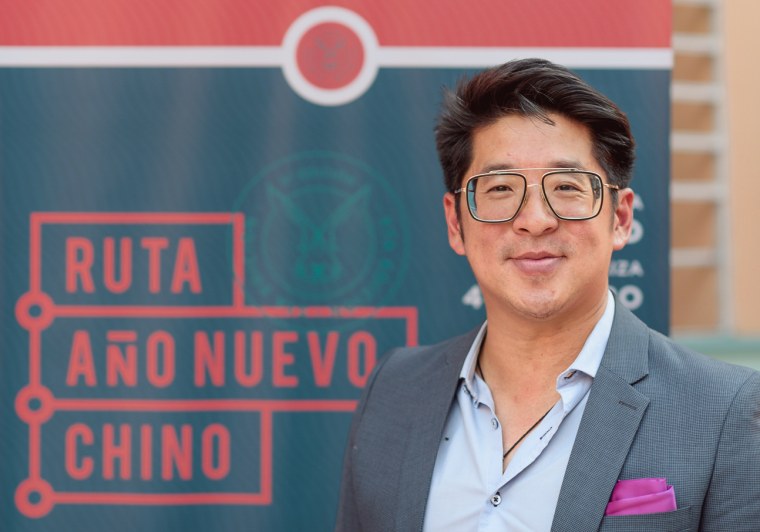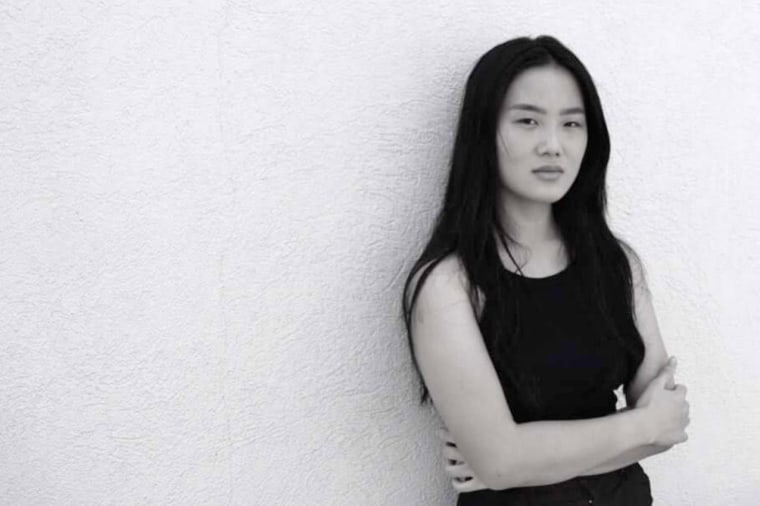In ‘white’ Argentina, TV star Martín Ku, who’s Argentine Asian, spurs reality
BUENOS AIRES, Argentina — On Dec. 11, the all-caps phrase ‘UN CHINO’ — or ‘a Chinese’ — began trending in Argentina on the social media platform X.
That night, the local spinoff of the “Big Brother” franchise aired the premiere of its latest season. Argentine television watchers were processing their surprise: For the first time in the hit show’s 11-season run, the cast of houseguests included an Asian contestant in the form of 24-year-old Martín Ku, the son of Chinese and Taiwanese immigrants.
It was a seminal moment for Asian Argentine representation in mainstream media.
In this South American country of 45 million people, no TV show rivals the big-tent appeal of “Gran Hermano.” The reality juggernaut is the most-watched program on Argentine airwaves, with mainstream news publications regularly covering the intrigue and machinations of each season as it progresses.
So when Ku strode into the “Big Brother” house, luggage in hand, it was a resonant milestone.
“We’ve been waiting for this for years,” said Carlos Lin, 44, an event emcee who has become one of the faces of Buenos Aires’ Chinese diaspora. “It’s huge.”

The inaccurate notion that Argentina is a white nation has widespread buy-in. Just last year, U.S. Rep. María Elvira Salazar, R-Fla., drew attention after praising Argentina for having “only one race” and being “completely homogenous” — a reference to the country’s perception as white.
It’s a misconception that is due in part to what experts, including Afro Latino scholars describe as a long-running “whitening process,” whereby the country’s leaders have boosted a European self-image while collapsing references to racial categories — the Argentine census bureau failed to collect racial information for much of its history.
In 1853, Argentina’s first constitution plainly stated that “the federal government shall foster European immigration.” Fast forward to the present day, a commitment to an exclusively European sense of identity continues to hold sway.
“We are all descendants from Europe,” the country’s right-wing president, Mauricio Macri, said in 2018. In 2021, left-wing President Alberto Fernandez said, “The Mexicans came from the Indians, the Brazilians came from the jungle, but we Argentines came from the ships.”
Marginalization — and ongoing stereotypes
The idea of an exclusively white Argentina lives on in part because of the thorough marginalization of Argentines of color. That’s especially true of the Chinese diaspora, which according to recent estimates numbers roughly 200,000 people, making it Argentina’s largest non-Latin American immigrant group.
Lucía Luna Li, 23, was born in the Buenos Aires metropolitan area to Chinese parents. Argentina, like the United States, grants birthright citizenship, meaning that those born in the country are citizens.
Li said she almost never saw someone of Asian descent in Argentine media growing up. Nowadays, she noted, it still isn’t uncommon for her to receive comments on social media that put her Argentine identity in question. On TikTok, she describes herself in her bio as being “an argenchina,” a play on words on Argentine and Chinese.

Given the reality genre’s widely documented struggles with diversity in the United States, where a “Big Brother” contestant had to be sent home last year for using a racial slur, it is perhaps not surprising that Ku’s pioneering foray into the Argentine reality space caused racial prejudice to rear its head in various degrees.
During the season premiere, the show aired a clip of Ku answering icebreaker-type questions, including if he eats asado, the typical Argentine barbecue meal, with chopsticks. Newspaper coverage recapping the show reductively refers to Ku as “the Chinese.” Earlier this month, another contestant mockingly pantomimed speaking Chinese, and poked fun at Ku’s mother’s Chinese name, in a display many fans found openly racist and xenophobic.
Still, there’s cautious optimism within the Chinese Argentine community that Ku’s star turn on “Big Brother” could help bring about positive change.
“It could help make Chinese folks a bit more accepted,” said Gustavo Ng, a Buenos Aires-based journalist who has written extensively about China-Argentina relations. “But just Argentinean Chinese. Chinese from China, that’s another story.”
A wave of migration and a new generation
Li’s parents…
Read More: In ‘white’ Argentina, TV star Martín Ku, who’s Argentine Asian, spurs reality

